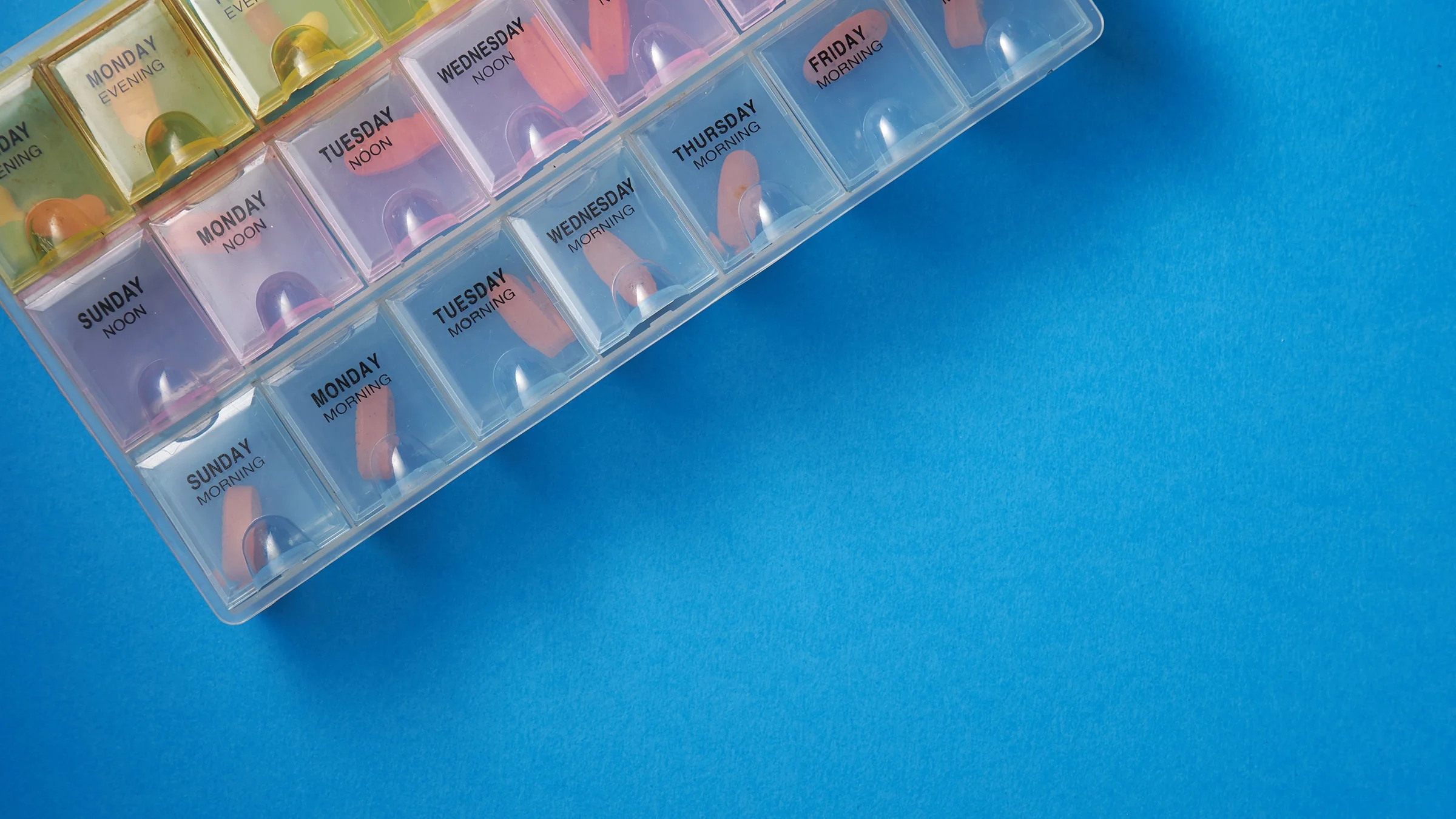Key takeaways:
Immunotherapy uses your immune system to fight many conditions.
Immunotherapy works with your immune system to treat different types of cancer and to prevent allergic reactions, among other potential uses.
Private health insurance, Medicare, Medicare Advantage plans, and Medicaid may cover immunotherapy. Patient assistance programs and other financial support can also help you pay for immunotherapy.
Save on related medications
What is immunotherapy?
There are many kinds of immunotherapy. The one thing they have in common is that they use the body’s immune system to treat conditions ranging from cancer to allergies.
Immunotherapy is used to treat many types of cancer, including breast, lung, skin, and colorectal. Immunotherapy may be combined with other cancer treatments, such as radiation or chemotherapy.
Allergy immunotherapy, another type of immunotherapy, trains your immune system to stop reacting to an allergen.
In addition, some types of immunotherapy are being studied as treatments for autoimmune conditions.
How much does it cost to have immunotherapy?
Like chemotherapy, cancer immunotherapy is costly. What you are charged will vary based on several factors:
Type of immunotherapy
Frequency of treatment
Insurance status and coverage
Some one-time treatments for certain cancers have six-figure price tags. On average, however, a full course of cancer immunotherapy can range from less than $1,000 for a 3-dose course of the preventive HPV vaccine to more than $373,000 for a cell therapy infusion — not counting the cost of inpatient healthcare. But allergy immunotherapy costs far less. Here are price examples by immunotherapy type:
Cancer immunotherapy
Immunotherapy types | Examples | Average price* |
Adoptive cell therapies (T-cell transfer therapy) | Chimeric antigen receptor T-cell (CAR-T) therapy (Yescarta, Kymriah) | $373,000 per infusion, not counting inpatient healthcare costs |
Cancer prevention vaccines | HPV (Gardasil 9) | The manufacturer list price is $286.78 per dose without insurance. (You may need 2 or 3 doses.) |
Cancer treatment vaccines | Sipuleucel-T (Provenge); these treatment vaccines are different than the ones that prevent disease | $45,000 per infusion; the 3-dose course of treatment is about $135,000. |
Immune checkpoint inhibitors | $22,674.72 for Keytruda every six weeks, or about $191,000 annually | |
Immune system modulators | Interleukin-2 (aldesleukin, Proleukin) | One insurance company will reimburse Medicare Part B up to $4,965 per injection, but that is a negotiated price. |
Monoclonal antibodies | More than $19,000 for the baseline 2-dose Rituxan infusions, or $9,812 for the initial dose |
*These are typically list prices and not what people actually pay out of pocket because of insurance, discounts, and/or patient assistance programs.
Allergy immunotherapy
Immunotherapy types | Examples | Average price |
Injections (shots) | Personalized serums | $1,000 to several thousand dollars per year |
Sublingual therapy | $60-$150 per month (about $2 per day on average) |
Keytruda, for example, is an immunotherapy medication used to treat several kinds of cancers. This medication is given every 3 weeks or every 6 weeks at a doctor’s office or infusion clinic.
Cancer immunotherapy can treat many types of cancer. These treatments help your immune system find and kill cancer cells.
You can receive immunotherapy with chemotherapy. Both chemo and immunotherapy can be used to treat certain cancers — and they work differently.
Allergy immunotherapy is different from cancer immunotherapy. Allergy immunotherapy trains your immune system to stop reacting to allergens.
As of March 2024, the manufacturer's listed price per dose for Keytruda is $11,337.36 every 3 weeks or $22,674.72 every 6 weeks — but these are not likely the prices you will pay. Your out-of-pocket cost for this treatment depends on many factors, including your insurance coverage, whether you have met your annual out-of-pocket limit, and your access to patient assistant programs.
Allergy immunotherapy is far more affordable than cancer immunotherapy. Often, people receive allergy injections. Sublingual immunotherapy (SLIT) — usually given by drops under the tongue — can cost less than allergy shots. According to The Johns Hopkins Sinus Center, the cost for SLIT is about $2 a day for the average person.
Why do many immunotherapy treatments cost so much?
Immunotherapy is a relatively new kind of cancer treatment. Immunotherapy medications often have high launch prices and high annual price increases, according to a report from The Commonwealth Fund. Treatments also are costly because of research-and-development costs. Pharmaceutical companies may spend even more on sales and marketing. In addition, a manufacturer can have the exclusive right to sell a brand-name medication for more than a decade without competition from generics.
Do health insurance plans pay for immunotherapy?
Many private insurance plans, including Medicare Advantage, cover cancer immunotherapy. So does original Medicare. These plans also may cover other types of immunotherapy.
Medicaid benefits differ depending on your state or territory of residence. Check with the Medicaid program where you live to learn about immunotherapy coverage.
Sublingual immunotherapy tablets for allergies may be covered by insurance. However, SLIT drops are considered an “off-label” use and usually are not covered by private insurance, Medicare, or Medicaid.
Does Medicare cover immunotherapy costs?
Original Medicare covers cancer treatment medications under Medicare Part B when they are dispensed in a doctor’s office or clinic. That coverage often includes IV infusions, which are frequently the delivery method for immunotherapy. You typically pay 20% of the Medicare-approved amount for your healthcare professional’s services after you meet the Part B deductible. In 2024, the Part B deductible is $240.
If your immunotherapy is delivered while you are admitted to the hospital, the coverage typically falls under Medicare Part A. Medicare Advantage plans meet or exceed what original Medicare covers, but your out-of-pocket costs will vary. Check with your health plan for details about cancer immunotherapy benefits.
Allergy immunotherapy via injections is covered by Medicare and Medicare Advantage.
What resources can help pay for immunotherapy?
If you do not have insurance, you may qualify for a patient assistance program from the medication’s manufacturer. Keytruda, mentioned earlier, is made by Merck. If you qualify, the Merck Access Program offers copay assistance for people with insurance and free medication for people who are uninsured.
There are organizations that provide financial assistance if you don’t have health insurance or help you if you’re diagnosed with a certain type of cancer, such as breast cancer. They can also help you cover out-of-pocket costs if you have insurance. These groups include:
You may consider joining a clinical trial that gives you access to immunotherapy. The Cancer Research Institute provides a portal to find cancer immunotherapy clinical trials.
Can you negotiate the cost of immunotherapy?
Most people do not pay the list price of medications. Though immunotherapy is often very specific, there may be a less costly alternative or generic.
Talk to your specialist about your financial concerns. Asking questions up front can help you save on medications.
What conditions can immunotherapy treat?
Besides allergies, immunotherapy can treat many conditions, including:
Blood cancers, including non-Hodgkin lymphoma and leukemia
Kidney cancer, including renal cell carcinoma
Skin cancer, including melanoma
Are there affordable alternatives to immunotherapy?
Besides immunotherapy, there are different kinds of cancer treatments. They include:
Surgery
Targeted therapy
Some of these options can be more affordable than immunotherapy. Ask your specialist about less costly medications or treatment combinations that will be effective for you.
The bottom line
Immunotherapy, an emerging treatment for cancer and other conditions, can be very costly. These interventions may be covered by private insurance, Medicare, or Medicaid. If you qualify, manufacturer patient assistance programs can help reduce your out-of-pocket costs. There are organizations that support people with cancer-related expenses, as well. Asking your specialist about costs up front may lead you to more affordable options for your cancer treatment. Allergy immunotherapy is often far less costly than cancer immunotherapy.

Why trust our experts?



References
American College of Allergy, Asthma & Immunology. (n.d.). Allergy immunotherapy.
American College of Allergy, Asthma & Immunology. (n.d.). Immunotherapy with allergy tablets: Sublingual (under the tongue) immunotherapy is an alternative way to treat allergies without injections.
Boltansky, H. (n.d.). Sublingual immunotherapy - allergy drops. Johns Hopkins Medicine.
Cancer Research Institute. (n.d.). Cancer clinical trials.
Centers for Medicare & Medicaid Services. (2023). Allergy immunotherapy.
CGS: A Celerian Group Company. (2022). Local carrier payment allowance limits for Medicare Part B drugs — effective April 1, 2022 through June 30, 2022.
Gardasil 9. (2023.). Cost information.
Hardin, F. M., et al. (2021). Cost-effective analysis of subcutaneous vs sublingual immunotherapy from the payor’s perspective. OTO Open.
United States Senate Health, Education, Labor, and Pensions Committee. (2024). Big Pharma’s business model: Corporate greed.
Keytruda. (n.d.). Cost info & financial help.
Medicare.gov. (2024). Medicare coverage of cancer treatment services.
Melanoma Research Alliance. (2021). Interleukin-2 (IL-2, Aldesleukin, PROLEUKIN®).
Philippidis, A. (2021). Second path: Dendreon seeks growth beyond Provenge. Genetic Engineering & Biotechnology News.
Satwani, P., et al. (2023). Establishing costs for commercial chimeric antigen receptor T-cell (tisagenlecleucel; Kymriah) in children and young adult B-cell acute lymphoblastic leukemia; a merged analysis from the PRWCC and PHIS. Blood.
Two Rivers Integrative Medicine. (n.d.). Allergies & SLIT therapy.
U.S. Food & Drug Administration. (2018). Questions and answers - Provenge.
Wallace, Z. S., et al. (2020). Increasing operational capacity and reducing costs of rituximab administration: A costing analysis. American College of Rheumatology: Open Rheumatology.
Waxman, H., et al. (2017). Getting to the root of high prescription drug prices: Drivers and potential solutions. The Commonwealth Fund.














